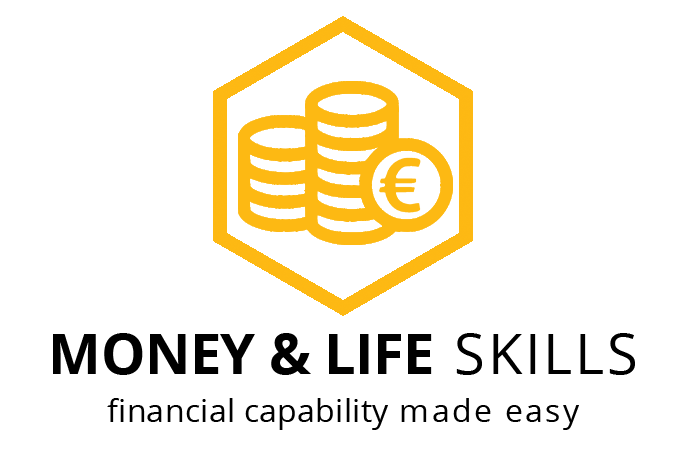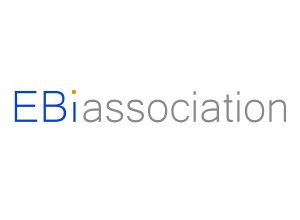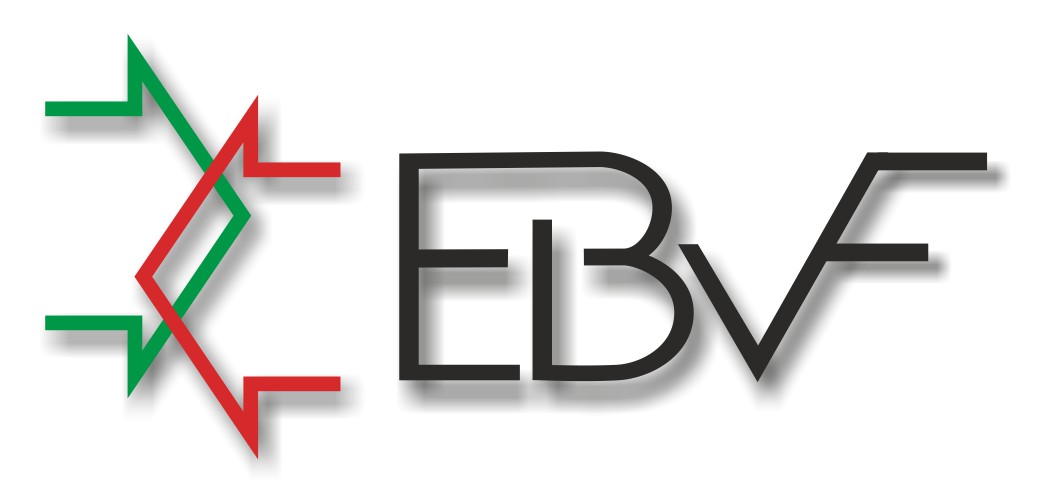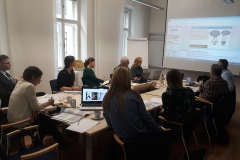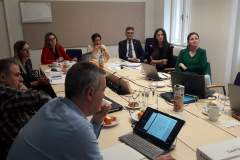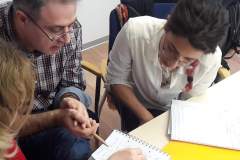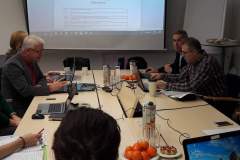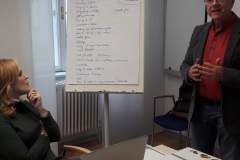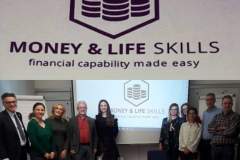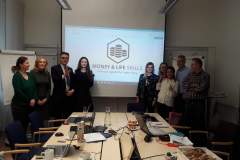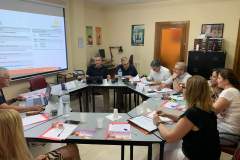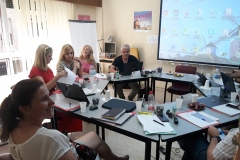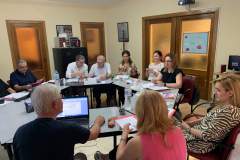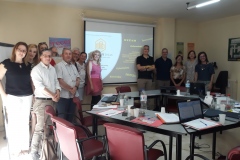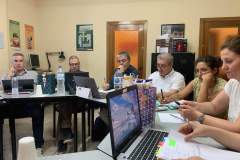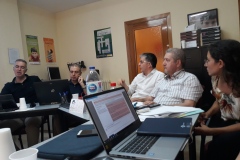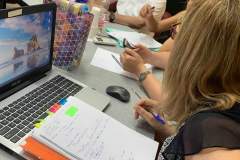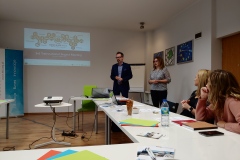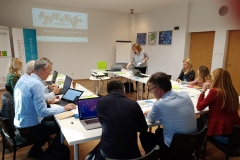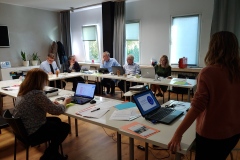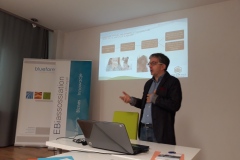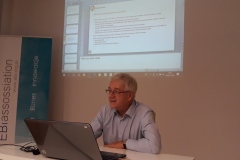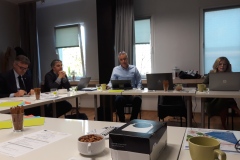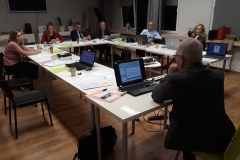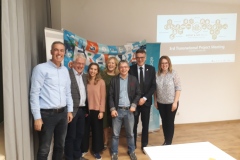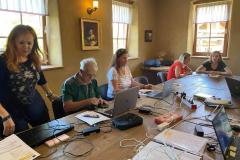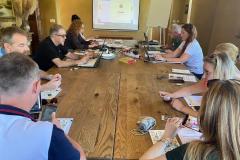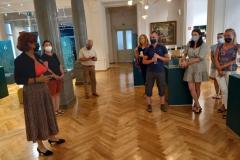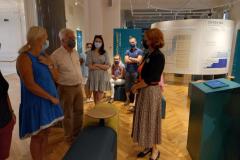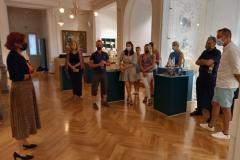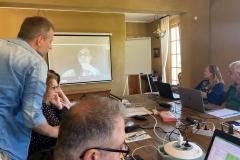About project
Project title: Money & Life Skills – Financial Capability Made Easy
Project number: 2018-1-PL01-KA204-050804
Programme: ERASMUS+ (Adult Education)
Key action: 2 Cooperation for innovation and the exchange of good practices
Type: Strategic Partnerships for adult education Innovation
Duration: from 31/12/2018 to 30/08/2021
This project is co-funded by the European Union under the Erasmus+ Programme.
Description:
The escalating numbers of low income and unemployed young adults (18-35) constitutes a severe social problem in the European Union. This group makes up to 40 % of the total young adults in Europe. The OECD states that low income jobs and unemployment leave a “wage scar”, whereby people who are unemployed when they should be at the start of their career can suffer from lower than average wages for decades afterwards. Youth unemployment and low income also does further damage by undermining pension savings, placing millions of young people across Europe at risk of having an inadequate income when they are older.
Improving financial literacy skills of such a disadvantaged group in the EU society will have significant benefits for everyone, since good financial literacy skills help, in combination with other economic “life skills”, individuals to make the most of opportunities, meet their goals, secure their financial well-being, and contribute to the economic health of society.
In this context, there is a great need to equip those young adults with skills to manage their (minimum) income in a way that will sustain their quality of life and their financial and civic competences at decent levels. However, currently available financial literacy trainings are structured in theoretical terms such as “budgeting” or “stock market participation”. We believe that we must refer to real-life situations of these young people, if we want them to become more competent. Therefore, our e-learning modules will cover aspects such as:
- the first car
- getting married
- renting a flat
- buying a house
- expecting baby
- getting divorced
- losing the job
- an accident happened
- making use of consumer rights
- …
Based on this (non-exhaustive!) list we will develop clear and attractive learning materials using simple language of or target group (in all languages of the partnership!) which will upgrade the economic resources of low income and unemployed young adults in Europe.
Leaflet: English / German / Greek / Polish / Spanish / Italian / Slovakian / Slovenian
Newsletter issue 1: English / German / Greek / Spanish / Italian / Slovakian / Slovenian
Newsletter issue 2: English / German / Greek / Spanish / Italian / Slovakian / Slovenian
Newsletter issue 3: English / German / Greek / Spanish / Italian / Slovakian / Slovenian
Partnership
Objectives
The overall objectives of our project build on the policy priorities of the Erasmus+ Strategic Partnerships, as they are:
- Objectives/priorities for adult education:
- Re-skilling, up-skilling literacy, numeracy and digital skills and civic competences: Money & Life Skills will have strong focus in improving numeracy, digital, and financial skills, while indirectly it will also improve the users’ language and reading skills;
- Access to Open Educational Resources in Education and Training: Money & Life Skills will be fully deployed through open and free access online tools and mediums such an e-learning platform, mobile applications, online games, social media, multimedia applications and networking;
- Modernize HE systems – access to adults: The Money & Life Skills online modules will be accredited based on the European Credit Transfer System (ECTS), where each module will have a certain number of ECTS credits, in order to secure easy integration in education systems;
- Awareness raising: Money Skills will be supported by a wide awareness raising campaign through social media, multimedia, dissemination seminars and conferences.
- Objectives/priorities relevant to all fields:
- Development of basic and transversal skills: Money & Life Skills will directly improve not only digital skills, basic mathematics and financial skills of young adults, it will indirectly also improve their language and reading skills and civic competences. This will be of special importance for migrants;
- Promotion of Innovative and learner-centred pedagogical approaches: Money & Life Skills will deploy innovative, learner-centred, ICT based pedagogical approaches that are based on the self-interest of the students;
- Development of appropriate assessment and certification methods through support of summative assessment methods. Online certificates will be provided to the learners upon completion of each module, accredited by the training institutions of the Money & Life Skills consortium;
- Provision of tangible learning outcomes: The learning outcomes will immediately become visible in the everyday life of the young adults;
- Validation of non-formal and informal learning: Money & Life Skills encompasses a series of components related to non-formal and informal learning such as access to online data and games, use of multimedia, forums and social networks. The partners will validate these activities and provide online certificates to the users.
Intellectual outputs
IO 1: Money & Life Skills Concept & Guidelines
The Money & Life Skills Guidelines will provide the didactical background for the e-learning materials and explain the advantages of the project’s approach in comparison to conventional financial literacy initiatives which have a theoretical approach (budgeting, savings, credit, stock market participation etc.).
They will also provide example curricula settings in which ways the materials can be applied in blended learning situations.
IO 2: Money & Life Skills Training Modules
The core contents of Money & Life Skills will consist of various modules. Most of them have been identified at our genuine needs analysis during the preparation of this application. Unlike all other financial literacy initiatives which have a theoretical approach (budgeting, savings, credit, etc.) our contents will refer to real-life situations and the training subjects will be:
- the first car
- getting married
- renting a flat
- buying a house
- expecting a baby
- getting divorced
- losing the job
- an accident happened
- making use of consumer rights
- …
IO 3: Money & Life Skills e-Learning Service and Course Platform
The e-Learning Service will be used as a virtual learning environment where users will be able to find the online modules, participate in learning activities, and communicate with other users, as it supports electronic management, storage and presentation of materials, and multilingual forums for networking, exchange of experience and good practice, with links to real-time translation that breaks down the language barrier between users from different countries.
The e-Learning Service will transform and incorporate the contents of the Money & Life Skills Modules and provide access to the training subjects.
The project will adapt selected online materials from the e-training courses in a pedagogically sound way into integrated apps for smartphones.
IO 4: Money & Life Skills Mobile Applications
Contents from the Money & Life Skills e-Training material that are suitable for presentation in applications for smartphones, plus links to the platform’s multilingual forum and communication tools, will be selected in a pedagogically sound way and developed into integrated native apps for delivering these contents via smartphones and mobile devices.
In this way, we support mobility: learners will have access to their learning material where ever and whenever they need.
All intellectual outputs that were developed under the project Money & Life Skills – Financial Capability Made Easy are available on the e-platform: https://training.moneylifeskills.eu/main/toolbox.php
Target group
Meetings
Transnational project meetings:
1st TPM – kickoff meeting:
Dates: 27/02/2019
Venue: Vienna, Austria
Host organisation: Wissenschaftsinitiative Niederösterreich
2nd TPM – developer workshop
Dates: 25-26/06/2019
Venue: Granada, Spain
Host organisation: Asociación andaluza de apoyo a la infancia – ALDAIMA
3rd TPM – midterm plenary meeting
Dates: 6-7/11/2019
Venue: Jastrzębie-Zdrój, Poland
Host organisation: Stowarzyszenie “EBI Association”
4th TPM – final meeting
Dates: 20-21/07/2021
Venue: Velenje, Slovenia
Host organisation: INTEGRA INŠTITUT, Inštitut za razvoj človekovih potencialov
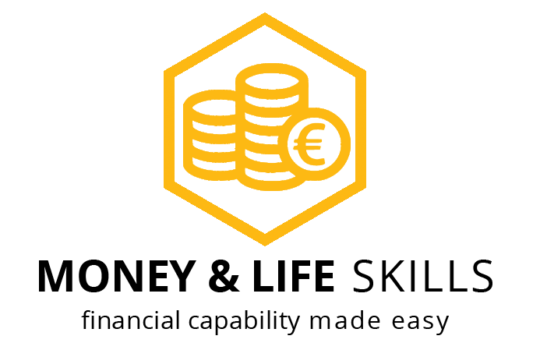
Wsparcie dla opiekunów osób starszych
Każdy kto boryka się z decyzją czy podjąć się opieki nad najbliższymi seniorami osobiście czy zlecić to przeznaczonym do tego instytucjom, może liczyć na wsparcie dzięki różnym projektom przeznaczonym właśnie dla seniorów.Read More

Consider adopting pet instead of buying it
The coronavirus pandemic has significantly limited our mobility and changed our daily life. On the other hand, the phenomenon of animal homelessness still exists and is not decreasing. Every day, the organizations and institutionsRead More

Jak zwiększyć wskaźnik DTI gdy starasz się o kredyt?
DTI – z ang. Debt to Income (dług do dochodu) – to wskaźnik wyrażający stosunek wszystkich zobowiązań finansowych do wysokości uzyskiwanych dochodów. Jest to jeden z najważniejszych wskaźników przy określaniu zdolności kredytowej przez banki.Read More

